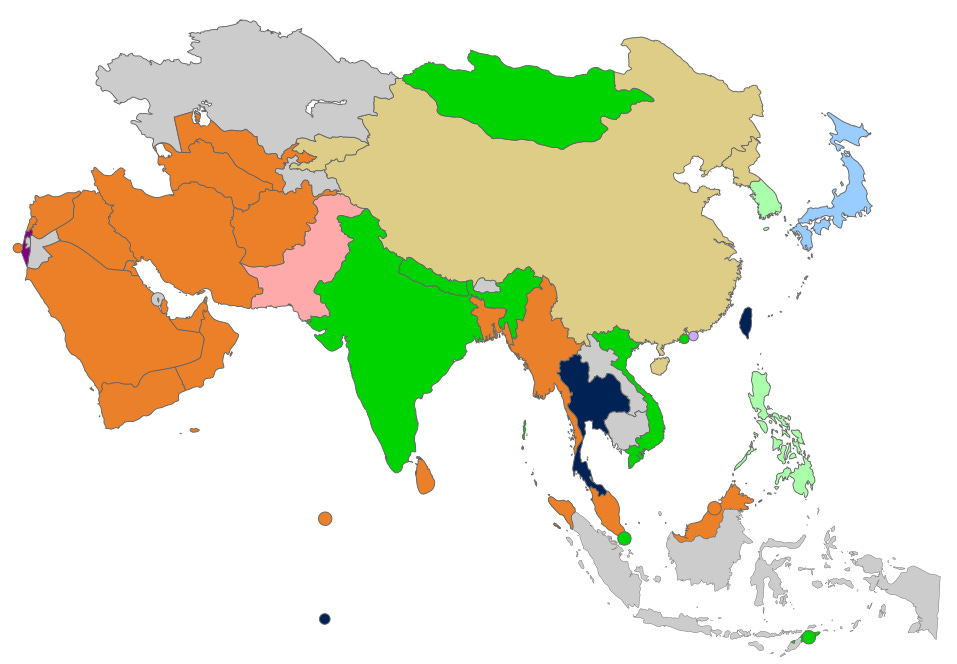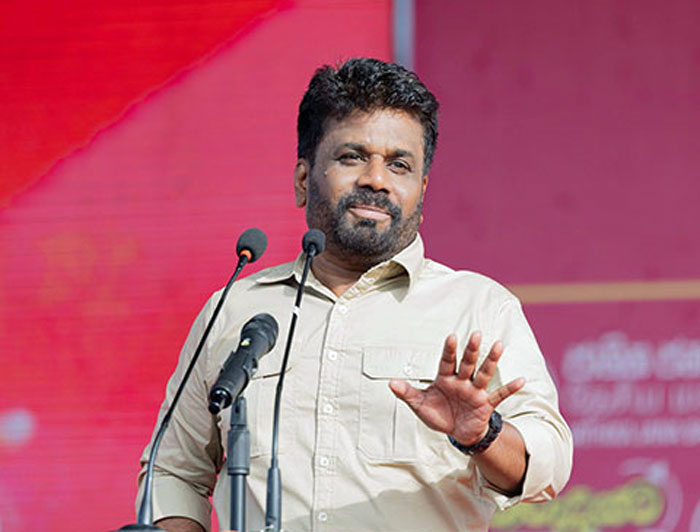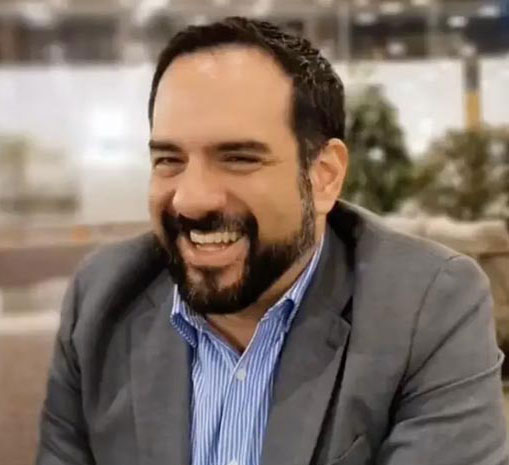Global update: The struggle for LGBTQ rights continues in Asia
Third in a series of updates about LGBTQ rights internationally, region by region
LGBTQ rights journalist Rob Salerno, an editor for Erasing 76 Crimes, surveys the status of LGBTQ rights and marriage equality in this series, which started with overviews of Africa and of the Caribbean, Central America and South America. (Click here to subscribe to his LGBTQ Global newsletter.)

Southeast Asia
Thailand: The biggest news of the year came from Thailand, where after a series of dramatic political crises, Parliament finally legalized same-sex marriage and adoption. Marriages are set to begin January 22. The government is working on updating secondary legislation, like family and surrogacy law, to ensure equality for same-sex couples.
Home to 71 million people, Thailand is the largest country by population to legalize same-sex marriage since Germany in 2017, and the biggest area we got to color in on the same-sex marriage map since Chile in 2022. Thailand is also the first country in Asia to legalize same-sex marriage through the legislature without a court order.
After parliament rejected a proposed gender recognition law by the opposition, the PM requested his cabinet draft an update on the law allowing legal gender changes.
The Thai cabinet also rejected calls to abolish the death penalty.
Thailand joined the Equal Rights Coalition of countries supporting LGBT rights; it is the first Asian country to join.
Vietnam: A Gender Affirmation Law was meant to be discussed by the National Assembly this year, but it has been indefinitely postponed.
Singapore: The government introduced a non-discrimination bill that left out protections for LGBT people.
Malaysia: In February, the federal court struck down sodomy laws in Kelantan state, ruling that these usurped federal power (which already criminalizes sodomy). In November, Kelantan passed a law banning the promotion of LGBT rights and activity in entertainment.
The rock band The 1975 was sued by concert promoters after their show was shut down by censors when lead singer Matty Healy criticized anti-gay laws and kissed a male bandmate on stage last year.

Last year’s other crazy Malaysia story was about the seizure of rainbow-colored Swatch watches that the government objected to. In November, courts ruled that the seizure was unwarranted and the Swatches were returned in December.
Malaysia also removed hundreds of people from death row after ending the mandatory death penalty last year.
Philippines: A non-discrimination bill, a civil union bill, and a cohabitation bill continue to languish in congress, but little victories popped up for LGBT rights. The government allowed trans civil servants to dress according to their gender and updated a media advisory board to promote gender equality. Quezon City created a “right to care” card for same-sex couples to designate their partners to have medical visitation and decision-making rights.
Timor-Leste: The government passed a law requiring police officers to provide service without discrimination based on sexual orientation.
East Asia
Japan: 2024 may yet prove to have been a pivotal moment in the fight for same-sex marriage in Japan.
11 additional prefectures established partnership registries for same-sex couples in 2024 (Yamagata, Wakayama, Aichi, Hyogo, Nara, Oita, Tokushima, Yamaguchi, Shiga, Fukushima, and Niigata), bringing the total to 30 out of 47, plus an additional 430+ municipalities that have created local registries. In April, three prefectures launched a network for mutual recognition of partnership registries, and it’s since grown to include 20 prefectures and more than 150 municipalities. Aichi extended its partnership registry to include “familyship” (recognition of children and in-laws), the third prefecture to do so. And a handful of municipalities amended their registry forms to use identical language to refer to partners as they would to straight married spouses.
The legal battle for same-sex marriage continued through the courts, with three appellate courts all agreeing that the ban on same-sex marriage is unconstitutional but ordering no remedy. Three more appellate court cases and a district court case are expected in 2025, and these will all eventually end up at the Supreme Court, which will have to resolve the issue.
How will the Supreme Court rule? Well, this year, they gave us a clues. In March, the Supreme Court ruled that a surviving partner ought to be entitled to benefits the government gives to victims of crime. Also that month, a family court in Nagoya allowed same-sex partners to adopt a common surname, ruling that they’re in a relationship akin to marriage.
All this seems to be shifting the political winds, albeit slightly. Snap elections in October yielded a minority government for the incumbent LDP, which is largely conservative on LGBT rights. But at least one advocacy group believes Parliament now has a majority of MPs who support same-sex marriage, and by December, even Prime Minister Ishiba was expressing support for equal marriage despite having no plan to bring forward legislation, at least until the court process plays out. One to watch.
South Korea: The Supreme Court upheld a lower court ruling that the National Health Insurance Service must provide equal benefits to same-sex partners in July. There’s at least some chance the Constitutional Court – which battles with the Supreme Court over which is truly ‘supreme’ – may sweep in to overrule this ruling, as they did by recriminalizing sodomy in the military last year. In the meantime, the NHIS has been ignoring the ruling, claiming it’s impossible to know who even counts as a couple, because there’s no legal recognition of same-sex couples.
Eleven couples began the legal process of suing for equal marriage rights in October, and likely we’ll see the courts fight out over who is supreme again.
Seoul’s Pride Festival was once again pushed out of the main city square by city council, and was heavily protested, as is becoming normal in South Korea.
The currently impeached president appointed a noted homophobic bigot to chair the National Human Rights Commission, over the objections of civil society and bypassing the National Assembly.
South Korea is in the midst of a democratic and political crisis, with the president and acting president having both been impeached in the last month.
No news from North Korea, which is busy fighting for Russia in Ukraine, for some reason.
China: Early in the year there were reports of a growing crackdown on LGBT bars that led a lesbian bar in Shanghai to shut down.
There was also a report of queer people being forced into conversion therapy programs, but by the end of the year, at least one case of a trans woman who was awarded damages by a court after she was forced to undergo conversion therapy.
While the government reconfirmed it had no plans to introduce same-sex marriage like Taiwan has, at least one court recognized a lesbian couple as coparents of their child.
In Hong Kong, the situation is a little different. Last year, the Court of Final Appeal gave the government until 2025 to establish a recognition scheme for same-sex couples that was equivalent to marriage. The government has not moved on this, with at least one legislator asking Beijing to intervene to block it. This year, the CFA supplemented that ruling with additional rulings that the city must recognize foreign same-sex marriages/unions and treat same-sex couples equally for public housing and inheritance.
The city also slightly loosened regulations around legal gender recognition. Applicants must still prove they’ve undergone medical treatment and at least some surgery, although the full suite of vaginoplasty/phalloplasty is no longer required. This was meant to bring the regulations in line with a 2023 CFA ruling that surgical requirements were unconstitutional, but I’m not sure how this does that.
Taiwan: The government removed barriers for cross-straits same-sex couples who wished to marry. Previously, couples had to reside together in mainland China for a period of time before their marriage would be recognized, something that was difficult or impossible for same-sex couples. Chinese nationals may still face difficulties leaving China, as the marriage won’t be recognized.
Taiwan’s top court upheld a requirement of a medical diagnosis to change legal gender. The court also upheld the use of the death penalty.
The government was drafting legislation to open up assisted reproduction and surrogacy to non-heterosexual couples – it’s out for consultation now and will likely go through in the new year.
South Asia
Nepal: There’s ongoing dispute on Wikipedia over whether or not same-sex marriage is legal in Nepal. So let me be clear: it’s legal. The Supreme Court issued a binding, albeit temporary, order to register same-sex couples last year. And while some couples have faced difficulties actually registering these marriages, the government issued a directive this April to all offices ordering them to register these marriages and dozens of couples have. These marriages do not have all the legal effects of heterosexual couples yet, but they are indeed marriages duly recognized and authorized by the government.
No word yet on when the full Supreme Court is going to decide on the issue, but the government is working hard to promote LGBTQ tourism, so it seems they see an upside.
The Supreme Court also issued a landmark judgement allowing a trans person to change her legal gender without undergoing sex reassignment surgery. The decision doesn’t set a binding precedent.
India: While the Supreme Court refused to legalize same-sex marriage last year, it did order the government to end discrimination against same-sex couples, and the government did take some notable steps this year. The government directed all banks to treat same-sex couples equally when opening joint bank accounts or naming beneficiaries. The government also made changes to the national health insurance plan to be more inclusive of LGBT people and couples. Other rights include prison visitation, ration cards, and claiming deceased partner’s body.
It’s still an open question *how* these couples are meant to be legally recognized. During national elections, the opposition Congress Party pledged to introduce civil unions, and though they lost, they outperformed expectations, holding PM Modi’s BJP to a minority relying on coalition partners to govern.
The government also directed states to ban conversion therapy and is looking at ways to prevent unnecessary surgeries on intersex children.

Sri Lanka: A bill to delete the colonial-era sodomy law did not advance at all this year. But it was supported by the National People Power party during November elections that it won with a commanding majority. We’ll see if they make it a priority in the new year. Sri Lanka has been in a kind of constant economic and political crisis for years now, so the new government has its hands full.
An opposition MP also introduced a bill to ban conversion therapy.
Bangladesh: Nationwide protests sprung up over a seventh-grade textbook that includes a story about a hijra (third-gender) person. A lesbian couple were arrested for disturbing the public order by cohabiting. And here on Erasing 76 Crimes, I edited way too many stories about gay and trans people being murdered.
Central Asia
Kazakhstan: The president signed a law banning same-sex couples from adopting. Parliament also debated bringing forward a Russia-inspired “LGBT propaganda” law.
Uzbekistan: An MP announced that his party was working on an “LGBT propaganda” law, inspired by the tweets of Donald Trump.
Middle East
Iraq: One of the biggest setbacks in the region occurred in April, when the Iraqi parliament passed a new law criminalizing gay sex and promotion of homosexuality, as well as criminalizing anyone who undergoes or performs sex reassignment surgery. Previously, Iraq didn’t have a specific law against homosexuality, although vague laws about protecting morals could be used to harass LGBT people, who often also suffered extrajudicial punishment. This law actually codifies it. Penalties include up to 15 years imprisonment.
Meanwhile, parliament also considered a law that would lower the minimum marriage age for girls to 9, legalizing and institutionalizing child rape, because morality.
Iran: Reformist candidate Masoud Pezeshkian won the presidential election, which may help soften some of the regime’s worst and most bellicose habits, but don’t expect miracles. Iran lost a lot of power in the region as its proxies in Syria and Lebanon suffered big defeats.
Israel: In March, the Supreme Court ordered that both mothers in a lesbian relationship must be listed on their child’s birth certificate, and that the registration should be automatic, as it is for other married couples. The decision applies only to lesbian couples who conceived via an anonymous sperm donor.
A court also ruled that a queer Palestinian man was eligible to claim refugee status in Israel.
Of course, the bigger humanitarian issue here is the ongoing war in Gaza, which seems to show no signs of slowing down.

Qatar: The biggest story of the year concerned a British-Mexican man who was detained by police for months amid a sting operation that caught him using Grindr, but officially charged him with possession of illicit drugs that he says were planted by police. He was eventually released amid mounting pressure, particularly from Britain.
Syria: The brutal Assad regime which has governed Syria for more than fifty years came to an end, and with it, the civil war that has wracked the country for over a decade. The jury’s still out on how the new regime will treat LGBT people, but my guess is that it won’t be much of an improvement, even if the general human rights situation does improve.
Yemen: A provincial court in an area run by the Houthi rebels sentenced several people to death for homosexuality in February.




